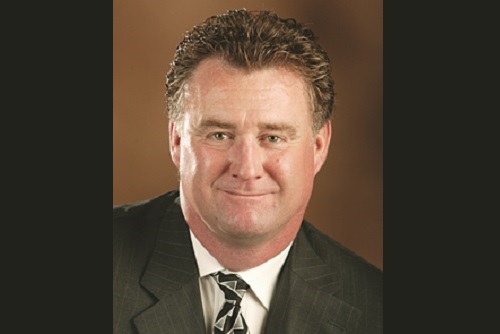One advisor explains how moving from the fast track to the front lines helped him fulfill the best role

It was the early ‘80s when Andrew Wilkin decided on a life-changing plan: after moving to Calgary from Montreal, he would go back to school and earn a degree. But after buying his first life insurance policy from an advisor who thoroughly impressed him, he quickly revised his objectives.
“He obviously enjoyed what he was doing, and he got such great satisfaction,” said Wilkin, a Sun Life Financial advisor who is a partner at Cowan-Wilkin Financial Services. “I ended up hiring myself into the business, picking up different degrees and designations along the way.”
The veteran with 38 years in the industry was first hired to do an apprenticeship as an advisor; noting his previous management experience, the company that took him put him on a fast track. Two and a half years after starting, he was placed in management and tasked to help develop the firm’s largest unit of advisors. He was reassigned to develop two other locations in Kitchener and Waterloo, after which he returned to personal financial planning in 1989.
“I have no regrets about that,” he said. “I know that I wouldn’t have done so well in the business if it weren’t for my managers. But I certainly believe the best role is to work with regular people and keep your finger on their pulse.”
Wilkin performs that palpation by establishing his office as a safe space. Experience has taught him that money scares people: they’re afraid to talk about it or ask questions about it, which creates a cycle of financial illiteracy. As a counsellor and confidant, he breaks the cycle by helping them understand the value of establishing goals, assessing their current situation, and formulating a roadmap — all of which requires the help of a professional advisor.
“The client-advisor relationship shouldn’t be one between a parent and a child; it should be one between two adult friends, two equals,” he said. “I think a number of people tend to get caught up in the acronyms and buzzwords associated with our business. I say keep it simple, speak their language, make sure they can keep up.”
According to Wilkin, many people have fears so deep-seated that they would refuse to discuss products and options, insisting that they don’t need them. But he’s able to coax many others out of that mode, encouraging them to engage and ask questions. After they understand that “they’re taking away dollars to live free tomorrow,” they’re more eager to take action.
“People face very real risks of living too long, passing away too soon, and becoming sick or permanently disabled,” Wilkin added. “I feel tremendous satisfaction when I complete a day and reflect back on clients I’ve helped, whether it’s to work toward their financial goals or protect their loved ones.”
To make sure he provides relevant advice to clients, he keeps his knowledge as current as possible. Aside from the valuable support of colleagues, he has relied on company-sponsored courses and industry programs that he’s able to access through a membership in Advocis. Other key elements that let him perform holistic financial planning are his membership in the Million-Dollar Round Table and his numerous designations, including the CFP, CLU, CHFC, and CHS.
“I started with the CLU and most recently got my CHS,” Wilkin said. “The business has changed tremendously; critical tools that we’re selling a lot of now — living benefits like disability insurance, critical illness insurance, long-term-care insurance — didn’t exist 38 years ago. A new advisor might want to pursue a CHS before the CLU, though I think the titles and designations are all important.”
It’s a hard point to argue against. Tax laws, public pension policies, regulations around investments and insurance products, and laws of the land are changing at breakneck speed. That means it’s risky for clients to go it alone; they need someone who can help them formulate a tailor-made plan, or make sure any plan they have is updated with respect to their circumstances, objectives, and time horizons.
Another concern that Wilkin foresees is that of succession. Financial advisors in Canada are somewhere between 55 and 58 years old on average, which means a new stable of professionals need to be trained in preparation for the next generation of clients.
“I’m 61 this year, with no plans to retire anytime soon,” he said. “But we’re not going to work forever, so I would like to transition my business over to someone so the continuity and quality of service to my clients is maintained.”



